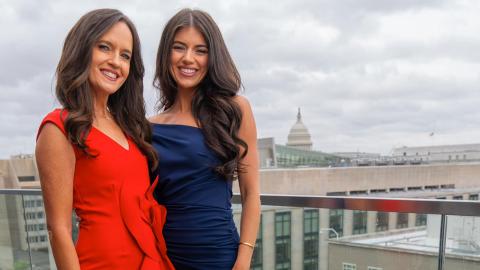'A Landmark Victory': Supreme Court Backs Religious Workers in Case of Christian Mailman
The Supreme Court on Thursday upheld protections for workers who ask for religious accommodations, basing its ruling on the case of a Christian mailman who didn't want to work Sundays.
In a unanimous decision, the justices made clear that workers who ask for accommodations, such as taking the Sabbath off, should get them unless their employers show that doing so would result in "substantial increased costs" to the business.
Part of the case in Groff vs. DeJoy is the interpretation of an "undue hardship" on an employer. A 1977 Supreme Court ruling known as Hardison established that employers don't have to meet religious accommodations if there is even a minimal burden on the business.
But the high court made clear that businesses must cite more than minor costs — so-called "de minimis" costs — to reject requests for religious accommodations at work. Unlike most cases before the court, both sides in the case had agreed businesses needed to show more.
 Justice Samuel Alito wrote in his majority opinion for the court that while some lower courts have understood Hardison the way the Biden administration suggested, other courts incorrectly latched on to the "de minimis" language "as the governing standard."
Justice Samuel Alito wrote in his majority opinion for the court that while some lower courts have understood Hardison the way the Biden administration suggested, other courts incorrectly latched on to the "de minimis" language "as the governing standard."
"In this case, both parties agree that the 'de minimis' test is not right... We think it is enough to say that an employer must show that the burden of granting an accommodation would result in substantial increased costs in relation to the conduct of its particular business," Alito wrote.
As CBN News reported in April, the case involved a former mail carrier who refused to work on Sundays because of his Christian faith and observance of the 4th Commandment – to remember the Sabbath.
Gerald Groff said he chose postal work because there used to be no Sunday mail delivery. When the Postal Service started delivering packages on Sundays, he sought a religious accommodation from his employer, but that ultimately didn't succeed.
Groff worked as a mail carrier in rural Lancaster County, Pennsylvania, from 2012 until he resigned in 2019. He says he had no other choice after the Postal Service refused his Sunday sabbath religious accommodation.
He said initially, when the Postal Service started delivering Sunday packages for Amazon, he found agreeable ways not to work on Sundays. Eventually, that changed, leading to disciplinary action, and he left the USPS.
Groff sued the Postal service for failing to accommodate his religious practice. He was represented by attorneys with First Liberty Institute, a nonprofit religious rights law firm.
The Biden administration argued that Groff's absences created a hardship for the postal service.
"His absences created direct, concrete burdens on other carriers who had to stay on their shifts longer to get the mail delivered. That caused problems with the timely delivery of mail and it actually produced employee retention problems with one carrier quitting, another carrier quitting, and another filing a union grievance," U.S. Solicitor-General Elizabeth Prelogar told the justices.
***Please sign up for CBN Newsletters and download the CBN News app to ensure you keep receiving the latest news from a distinctly Christian perspective.***
Lower courts ruled against him previously. As a result of the Supreme Court's ruling, his case will get another look.
"This is a landmark victory, not only for Gerald but for every American. No American should be forced to choose between their faith and their job," President, CEO, and Chief Counsel for First Liberty Kelly Shackelford said in a press release. "The Court's decision today restores religious freedom to every American in the workplace. This decision will positively help millions and millions of Americans – those who work now and their children and grandchildren."
Groff said in a statement after the ruling that he was grateful the court heard his case. "I hope this decision allows others to be able to maintain their convictions without living in fear of losing their jobs because of what they believe," he said.



